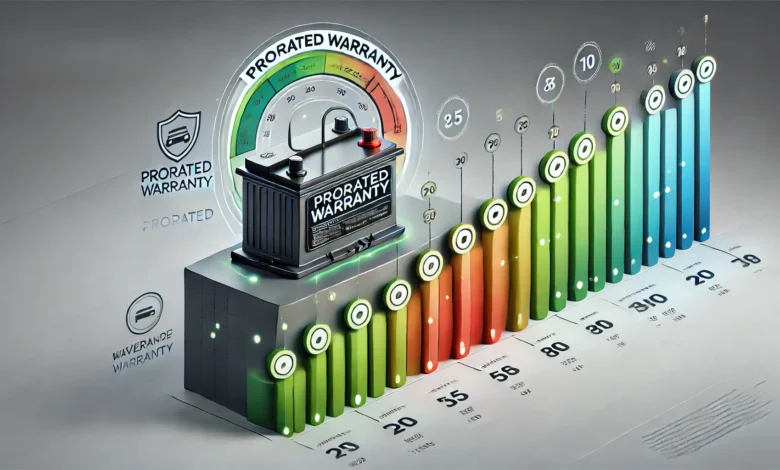What Does It Mean When a Warranty is Prorated? Full Explanation & Insights

A prorated warranty is an important term to understand when purchasing a product or service with coverage, as it can significantly impact how much you end up paying for repairs or replacements. In this article, we’ll explore what does it mean when a warranty is prorated, how it affects you as a consumer, and real experiences shared by users who have dealt with prorated warranties.
best online pharmacy with fast delivery buy arimidex online with the lowest prices today in the USA
What is a Prorated Warranty?
At its core, a prorated warranty is a type of coverage that decreases in value over time. When a warranty is prorated, the manufacturer or service provider will cover only a portion of the repair or replacement cost, depending on how long you’ve owned the product. As the product ages, your financial responsibility for any necessary repairs in
For example, if you have a 10-year prorated warranty and your product needs a replacement in year six, the manufacturer might only cover a percentage of the replacement cost, requiring you to pay the rest. This differs from a full replacement warranty, which would replace the product at no cost to you, regardless of how long you’ve had it, as long as the warranty period hasn’t expired.
How Prorated Warranties Work
Prorated warranties usually have a sliding scale that determines how much of the repair or replacement costs are covered as the product ages. The scale could work like this:
- In the first year, the warranty might cover 100% of repair costs.
- By year five, the coverage might drop to 50%.
- After year eight, you might only get 20% coverage from the warranty.
What does it mean when a warranty is prorated? It means that your financial responsibility increases as time goes on. This is crucial when evaluating long-term ownership costs, especially for products like cars, home appliances, or electronics, where repairs can be expensive.
Real User Experiences
Looking at reviews from users on car websites and other platforms, opinions about prorated warranties vary widely. Some consumers appreciate the idea of having some coverage even after years of ownership, while others feel frustrated when the amount covered decreases significantly just when they need it most.
For example, one user on an automotive forum mentioned that they had a prorated warranty on their car’s battery. In the fourth year, when the battery failed, they expected to pay nothing, but ended up covering 70% of the replacement cost themselves. They expressed frustration, feeling that the prorated warranty didn’t offer as much protection as they had hoped.
Another user, however, shared a more positive experience. Their prorated tire warranty allowed them to get a substantial discount on a new set of tires after five years. Though they didn’t get full coverage, the partial discount made a big difference in what they paid.
Key Considerations
When asking what does it mean when a warranty is prorated, it’s important to consider:
- Duration of Full Coverage: How long will the warranty offer full or nearly full coverage? This is especially important for items like cars and appliances that you expect to use for many years.
- How Quickly Coverage Decreases: Some warranties drop their coverage percentage quickly, while others decrease more gradually. Be sure to understand the schedule so you’re not caught off guard.
- Cost of Repairs: If repairs for your product are expensive, a prorated warranty could leave you paying a significant portion of the bill after just a few years.
Is a Prorated Warranty Worth It?
The value of a prorated warranty really depends on the product and your expectations. For a large purchase, like a car or home appliance, a prorated warranty can offer peace of mind for a longer period. However, it’s essential to understand how much you could end up paying out of pocket, especially after the first few years.
For some users, having even partial coverage is better than none. As several reviews noted, prorated warranties still helped reduce their costs, even if they weren’t as comprehensive as full replacement warranties. It’s important to read the fine print and know what percentage of costs will be covered at different points in time.
In conclusion, when asking what does it mean when a warranty is prorated, the answer lies in understanding that the warranty’s value decreases over time, placing more of the financial burden on the consumer as the product ages. While not as ideal as full replacement warranties, prorated warranties can still offer significant savings—if you know how they work and plan accordingly.










